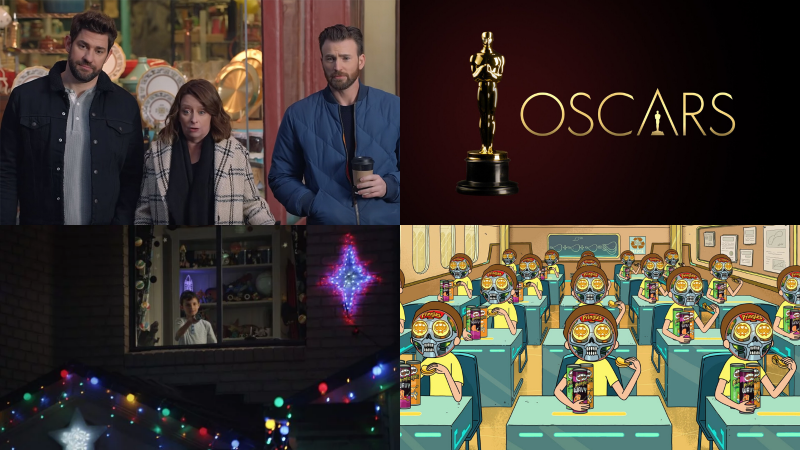People hate our industry because we make stuff people hate. The Oscars, Super Bowl and Christmas prove there’s a better way
More often than not, this industry smashes out the same old shit, says Host/ Havas’ Jon Austin. But the Oscars, Super Bowl and Christmas show us that it doesn’t have to be that way. The answer is in covering up our Byron Sharp tattoos and creating real entertainment.
Only a handful of industries can claim with absolute certainty that the world, by and large, hates them. Big oil. Parking enforcement. Bat soup manufacturers. Advertising.
And, as the inimitable Nils Leonard points out, only one of those industries has its very own button, designed to let its audience actively skip what it makes.
Yeah, yeah – hate’s a strong word and all that. But it seems pretty accurately applied here. And whoever says it’s a vague, indeterminate emotion clearly hasn’t read Havas’ recent Future of Entertainment study, which offers some handy stats for measuring peoples’ contempt.

Ads running during the Super Bowl and the Oscars, and over Christmas, prove that people don’t want to hate ads


One of the weird things I recall in ‘How Brands Grow’ is Lord Byron urging for ‘meaningless distinction’. A little disruption bomb hidden in the careful formula? Is he really saying: as long as people remember the brand, go batshit crazy? He may be more on the side of entertainment than it seems on the surface. Anyone got any insight?
@PhilWatson the difference between Sharpy and those who know how brands really work is that he believes in brand ‘salience’ over everything — that you have to be ‘always on’ in your advertising, otherwise you’ll be quickly forgotten and not sell anything. That’s why his Ehrenberg-Bass brand tick-list kicks off with ‘brand mention in first three seconds’. He does not believe that brand loyalty exists. Hahahaaaaaaaaaa, good one Byron! Let’s take Holden. A ton of salience. No brand loyalty. End of story.
You are correct Phil. Most people who (actually) read How Brands Grow consider it good evidence in support of the value of creativity. I’m baffled how anyone could interpret it in completely the opposite direction ? Perhaps they didn’t actually read it?
Advertising in Oz has now become message-saying, not about attention-getting. Whether it’s marketers fear of negative comments on social media, a CMO’s fear of the old crusties on their company board, or just the plain old risk-adverse, conservative era we’re now in – most ads aren’t ‘entertaining to buy your attention’ anymore because they are suffocated by unsure marketers, and the over engineering of the processes around creating communications. Hello 1950’s wholesome advertising.